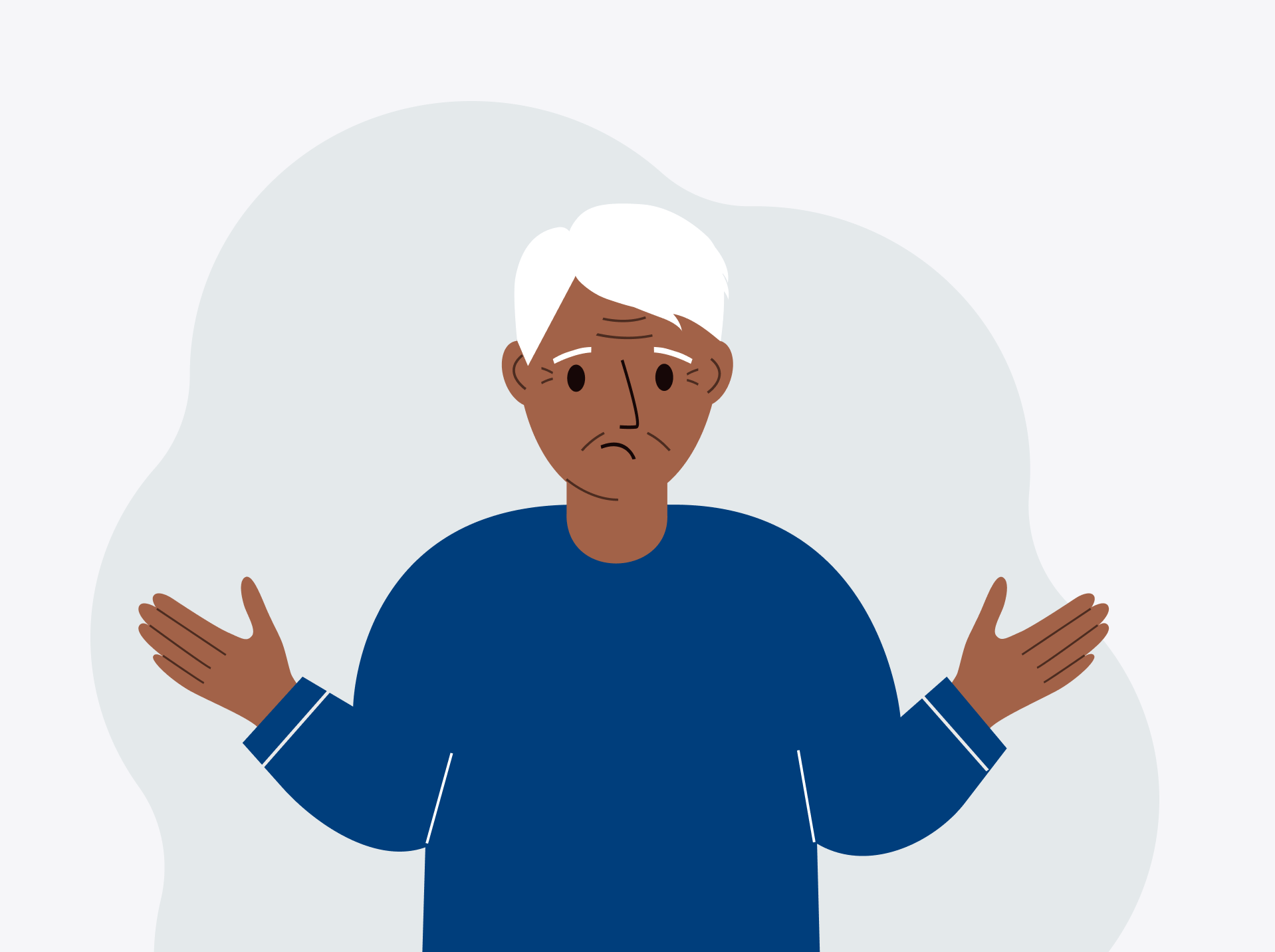Do You Have These Symptoms of MANopause?
Is MANopause the cause of your poor sexual function? Here’s how to know if male menopause is getting in the way of your sex life.
Last Updated: 04/13/2023

MANopause—otherwise known as male menopause or andropause—affects some aging men when their testosterone levels gradually fall during aging. This decline can lead to problems with sexual function, along with other symptoms of male menopause like fatigue and irritability.
In our 90-day challenge, we’re asking men to change one aspect of their lifestyle each week to really dial in the effects of Li-ESWT on sexual function. In the final part of our 12-week 90-day challenge, we recommend men make an appointment with a men’s health clinic to diagnose and treat male menopause—or pin down the other possible reasons for your sexual decline.
In this blog post, we’ll shed some light on manopause and dive into its signs and symptoms.
What Is Male Menopause?
Male menopause refers to the gradual decline of testosterone that occurs in many men during aging. It’s pretty much the same as testosterone deficiency. However, many experts believe the term “male menopause” is a misnomer since it implies that men are going through the same dramatic drop in hormones that women do during female menopause.
However, men’s testosterone levels decline slowly over three decades, from age 40 to 70, whereas women’s estrogen levels drop in a relatively short period. Men are also able to have children after andropause, whereas after female menopause women no longer can reproduce.
Signs and Symptoms of Manopause
Signs and symptoms of manopause are the same as low testosterone symptoms. If you have any of the following signs or symptoms of male menopause, work with a men’s sexual health clinic to order a testosterone test.
Be on the lookout for these clues that you need to get your testosterone levels tested:
Low sexual function
Irritability
Fatigue
Weight gain
Brain fog
Depression
Breast discomfort or swelling
Hot flashes in men
Night sweats in men
Low bone mineral density
Decreased muscle mass
Cardiovascular disease
Manopause is not the only thing that can cause many of these signs and symptoms. Low testosterone caused by factors like being obese, exposure to environmental toxins, diabetes, obstructive sleep apnea, and taking certain medications can lead to the above symptoms.2
Some genetic disorders, cirrhosis of the liver, alcohol use disorder, and kidney failure also can cause testosterone deficiency.1
Consequently, it’s a good idea to get a full exam at a men’s sexual health clinic to find out if the cause is male menopause or something else.
What Age Does Male Menopause Start?
Your hormones age just as you age. The male hormone testosterone falls roughly 1% a year after age 40.2 However, you might not experience any symptoms of manopause until you’re in your 50s, 60s, or beyond.
You might not experience any symptoms, since even with a decline in testosterone levels during aging most older men still have testosterone levels in the normal range. Only 10% to 25% of men have testosterone deficiency as they age.
The only way to know if you’re undergoing manopause is to visit a men’s sexual health clinic for a testosterone blood test.
To discover more about what’s considered a normal testosterone level, read our guide: What Are Average Testosterone Levels by Age in Men?
Andropause Diagnosis
To diagnose manopause, doctors will usually order a testosterone blood test to measure free testosterone, total testosterone, or both.
Most testosterone is attached to proteins in the body, but free testosterone is not, hence the word free in the name. Total testosterone testing measures both free and attached testosterone, while free testosterone blood tests measure only the unattached version of the hormone.
Usually, doctors will follow the American Urological Association recommendations to perform two total testosterone blood tests on separate occasions.3 Testing in the morning, when levels are the most consistent, provides the most accurate results.
Male Menopause Treatments
Andropause treatments involve raising testosterone levels. Doctors usually accomplish this through testosterone replacement therapy.
However, a handful of natural testosterone boosters may also raise levels of this hormone. We reviewed the most effective testosterone supplements in a previous blog post.
Crossing the Finish Line of Our 90-Day Challenge
Congratulations! If you’ve read this blog post and the other 11 in our 90-day challenge series, and you’ve put into practice the strategies suggested in each post, you’re likely to notice your sexual health improving. Combining the recommendations in our 90-day challenge with Li-ESWT is an excellent way to ramp up your sex life and your overall health.
Missed any of our previous 90-Day Challenge blog posts? Check out the list below:
Week 1: Does Intermittent Fasting Work To Improve Men’s Sexual Performance?
Week 2: Sugar and Sodas: Two Important Causes of Low Libido in Men
Week 3: Is Late-Night Eating Bad for Sexual Health?
Week 4: How To Stop Drinking Coffee and Alcohol to Boost Your Sex Drive
Week 5: Foods that Cause Inflammation and Decrease Libido in Men
Week 6: How to Increase Sexual Stamina with Exercise
Week 7: Can TV and Smartphone Addiction Cause Low Libido?
Week 8: How Does Marijuana or Cigarette Smoking Affect Your Libido?
Week 9: How Much Porn Is Too Much?
Week 10: How Often Can You Use a Penile Pump?
Week 11: How To Naturally Boost Testosterone and Nitric Oxide for Better Libido
Sources:
1. https://my.clevelandclinic.org/health/diseases/15603-low-testosterone-male-hypogonadism
2. https://www.mayoclinic.org/healthy-lifestyle/mens-health/in-depth/male-menopause/art-20048056
3. https://www.auanet.org/guidelines-and-quality/guidelines/testosterone-deficiency-guideline